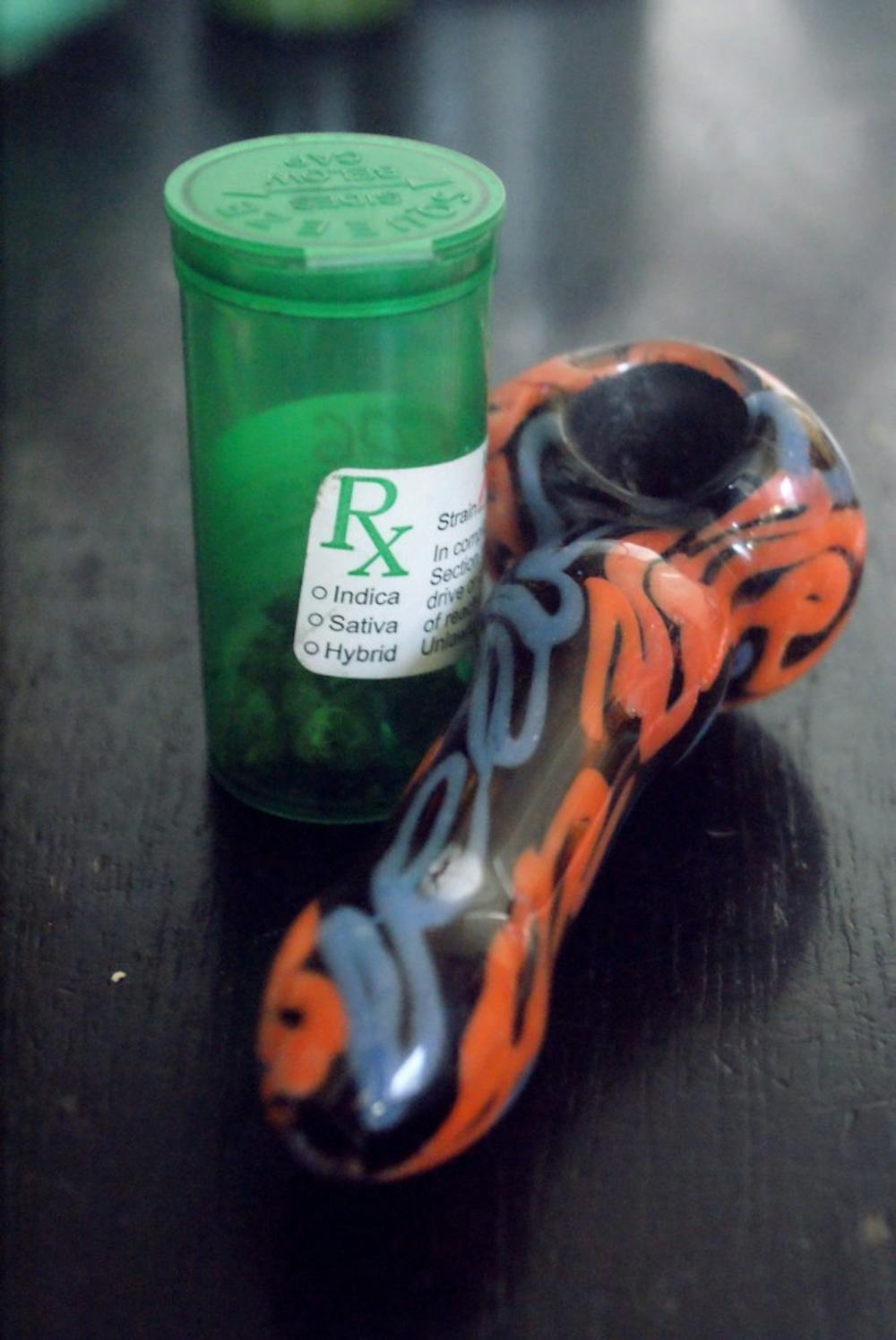An ASU student who was charged with possession of marijuana after medical marijuana was found in his dorm room is bringing his case before the Arizona Supreme Court.
Digital culture sophomore Andre Maestas was arrested in March of last year after an ASU police officer found him sitting in the street near Forest Avenue and Lemon Street, according to his attorney Tom Dean.
Dean said the arresting officer “rifled through his wallet” and found Maestas’ medical marijuana card.
“He was taken to the ASU police station on campus and interrogated,” Dean said. “The police officer asked him why he was a medical marijuana patient, if he had medical marijuana with him, or if he had any in his dorm after the officer found out he lived in the dorm. Andre said since he is a medical marijuana patient, he said he had a small amount of his medicine in his dorm.”
Jerry Cobb, a spokesman for the Maricopa County Attorney’s office, said medical marijuana is prohibited on elementary school, high school and public university campuses, according to the Arizona Medical Marijuana Act.
The act originally did not prohibit medial marijuana on college campuses, Dean said. The act was amended after its passage to include public college campuses and detention facilities, Dean said.
In order to amend a voter-passed initiative, the amendment must be approved by a supermajority of both houses of the Legislature and must further the purpose of the initiative, Dean said.
This is where the state and Maestas’ defense team disagree, Cobb said.
The state, which succeeded in the original trial court and the first appeal, said the amendment follows these standards because it helps to limit the usage of medical marijuana in a place where young people gather for the purpose of education, Cobb said.
“Although the AMMA generally decriminalizes medical marijuana for qualifying patients, it does not shield 'qualified patients' with a medical marijuana card from all prosecution," Ryan McCarthy, the deputy county attorney representing the state in the case wrote in the state's objection to Dean's motion.
Dean said the amendment fails to further the initiative’s original purpose, because he says the purpose of the initiative is to protect patients.
“By subjecting patients to prosecution, that does not protect them,” Dean said. “It fails the second provision, which is why I filed the motion to dismiss the case.”
The original trial judge did not accept the motion to dismiss the case, and the court of appeals declined to review the case, Dean said. However, Dean appealed the case to the Arizona Supreme Court, who granted the stay of proceedings and ordered the state to respond to Dean’s petition.
Dean said the state is also citing the claim that the University would lose federal funding if it does not maintain a drug free environment.
"They cite no statute about why this would actually apply," Dean said. "The funding issue is frivolous."
Dean said the only issue the state used as an example was the need to maintain a drug-free workplace, which he said does not apply to students on campus.
Cobb, however, said maintaining the drug-free status is important to the state and to ASU.
"I can't speak for every professor or staff member, but I think most would want to make sure they keep that federal funding," Cobb said.
Reach the reporter at Corina.Vanek@asu.edu or follow @CorinaVanek on Twitter.
Like The State Press on Facebook and follow @statepress on Twitter.




